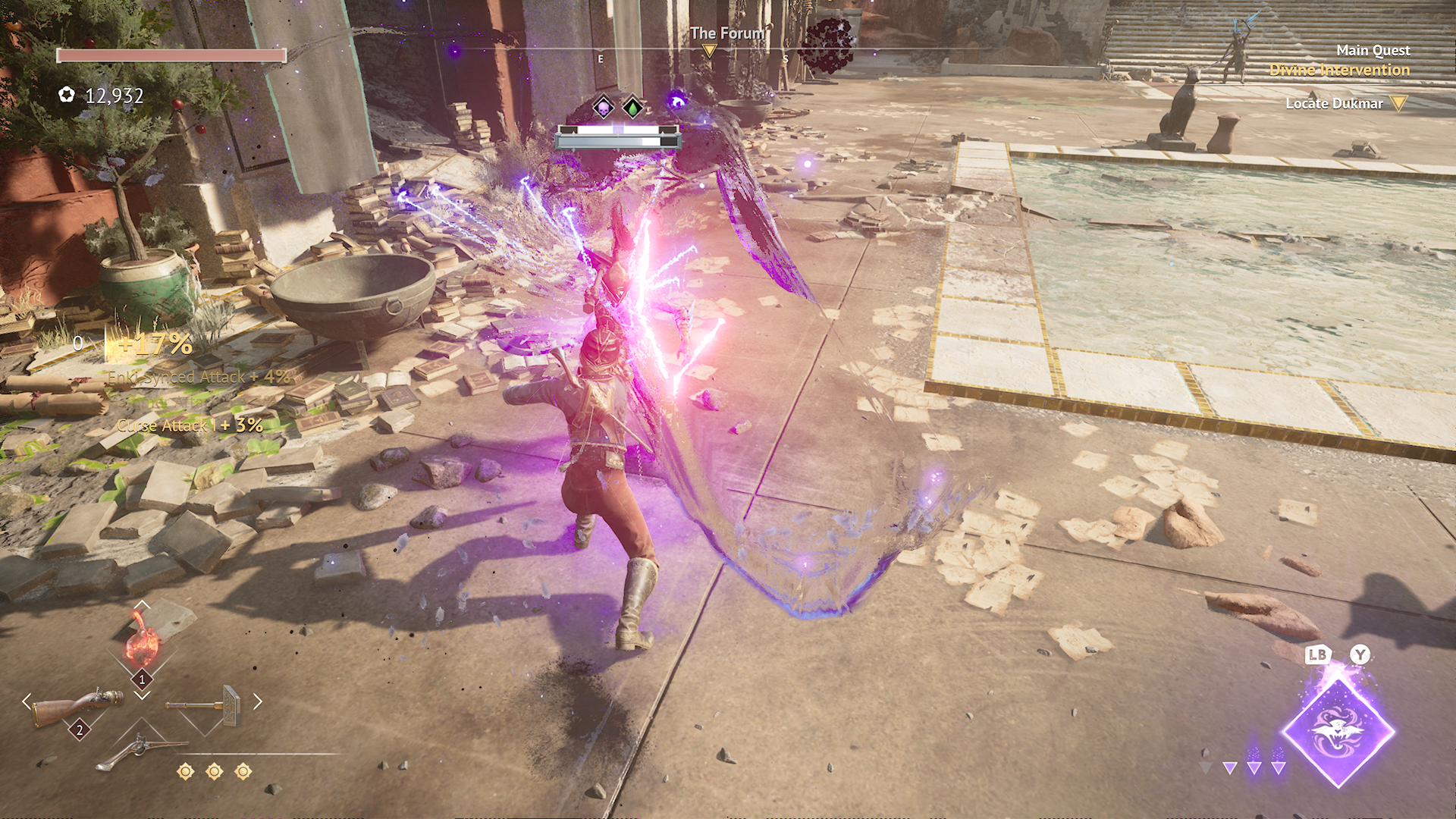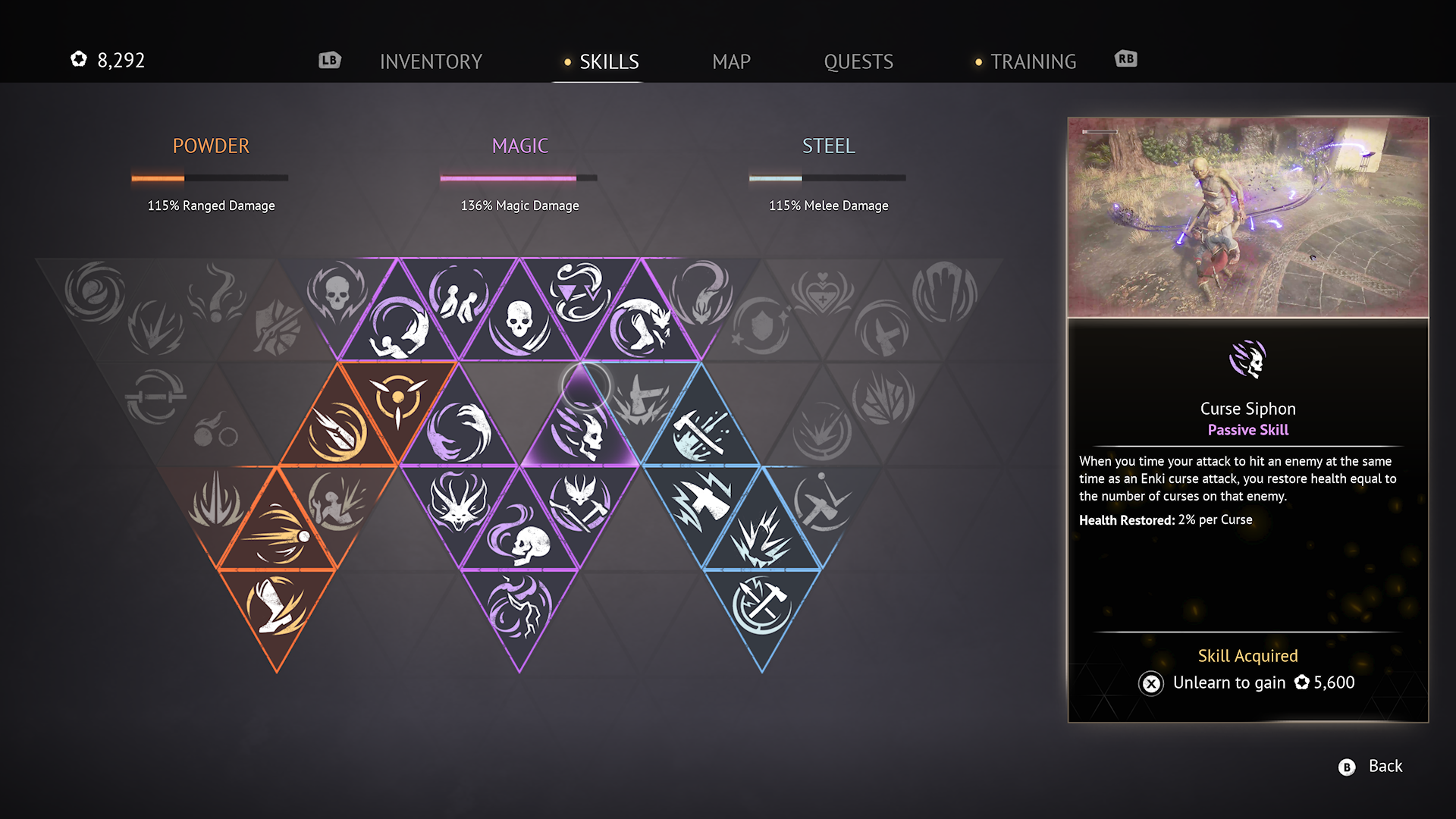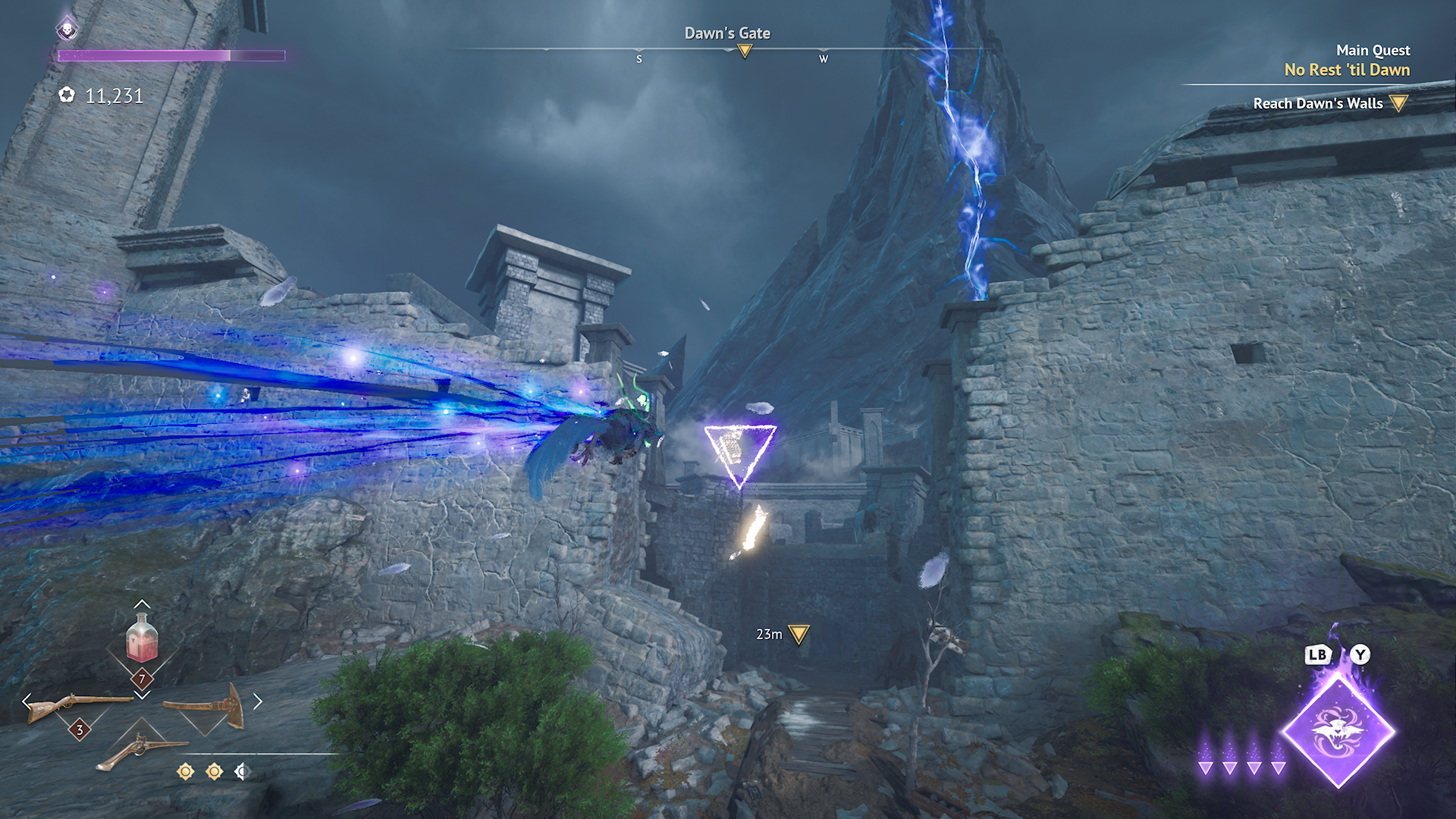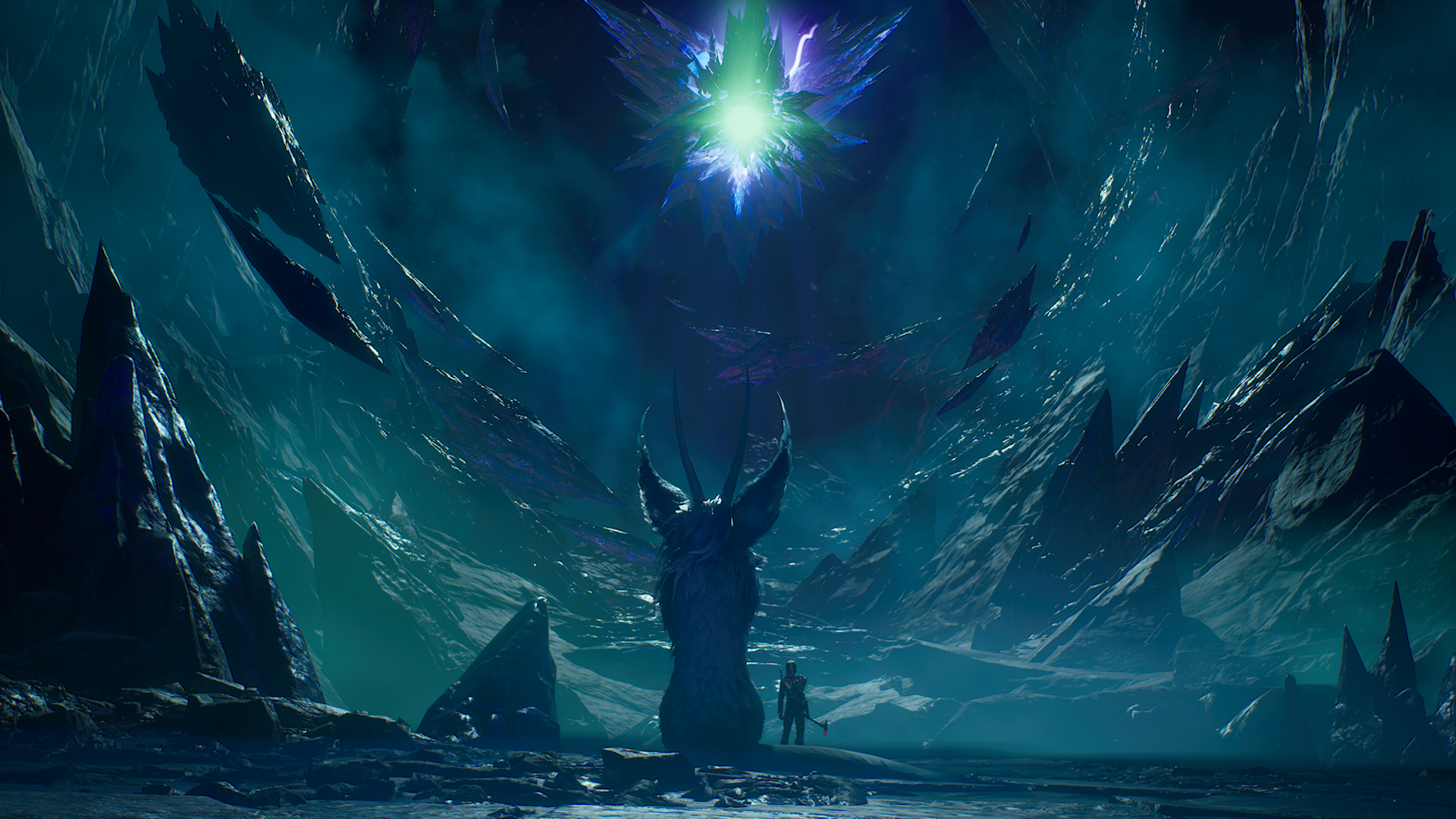Flintlock: The Siege of Dawn Review
Played on Xbox Series X
Developed by A44 Games
Released 18th July 2024
When 'Ashen' was released, it was all the craze: a co-op Soulslike with a strong foundation for gameplay. While I never set out to beat the game, I did appreciate its high-quality combat and the somewhat engaging world that it was set in. I mean just talking about it makes me want to give it another go more than talk about 'Flintlock' with how much it disappointed me. If you haven't gathered, A44 made both games, sharing elements from the Soulslike genre. However, there is clearly a lack of identity in 'Flintlock', the opposite of 'Ashen' and its 2018 release. This becomes even clearer with how 'Flintlock' grabs inspiration from too many things: 'Elden Ring' for gameplay, 'Tony Hawk' for the score multiplier, 'God of War (2018)' for its duo dynamic. While normally this is fine, this game, which took 6 hours for me to complete, ends up feeling like a Frankenstein of other games not fine-tuned to suit each other.
Story
The story was severely underwhelming. 'Flintlock' follows Nor, a Sapper, a soldier on the frontlines of the 10-year-long war against the waves of undead that the gods unleashed. In your attempt to blow up the gateway of the undead, you come across Enki, a god willing to help you kill off the other gods. What proceeds is a narrative that lacks the emotional connection to make its "shocking" moments land and jagged pacing that makes you question why you are in this certain location. Despite the developers promising a 15-hour-long story, this can easily be beaten in 5-6 hours depending on how good you are at the game and how much you want to engage with the world. By the halfway point, I lost almost all interest in the game and its world. The setting is somewhat intriguing and from the first exposition-filled cutscene, I really tried to hook myself into it and succeeded at certain points. A knight-filled land that is brainwashed to worship a certain god or an ancient Greek-inspired area filled with mindless subordinates of the ruling god; there was potential to be vastly varied but A44 Games failed. The NPCs don't offer sidequests that breathe life into the environments, instead, they make the areas feel even more barren than they are with their lack of personality and disinterest in the changing world around them. The lack of the different regions reduces how much the narrative can unfold and portray the danger of these gods and instead, repeat the same narrative threat in these lands that are empty besides the fairly linear path to the god that doesn't offer any depth or progression in the story besides the "shocking" moment that I spoke off. Most of this lack of substance can be attributed to the plain writing but I wouldn't be surprised if the narrative structure were freestyled on the spot with how not worthwhile and disconnected it gets.
Gameplay
The gameplay was mediocre at best, struggling to find its refined self. It definitely borrows several elements to try to make its gameplay worthwhile; the cinematic action camera angle of the recent 'God of War' games, the RPG exploration and "challenge" of 'Elden Ring', the score multiplier of the 'Tony Hawk' games and even a fictional game you can play between NPCs like 'Gwent' from 'The Witcher 3'. On their own, each element makes enough of an impact to feel fine, but when you combine them to make a seemingly fruitful combination, you get a mess instead.
The score multiplier of the player's Reputation (this game's version of Souls/ Runes) was a cool idea. As you attack an enemy, you'll gain a percentage bonus for each type of attack you do which you can then apply as a multiplier to the Reputation you gain for defeating the enemy, however, the multiplier will be reset if you get hit. Trying to make your playstyle more aggressive and stylish, putting you at as much risk as it provided a reward, was a neat way to promote experimentation for the player. The issue, however, is that the game isn't suited well enough to handle this as there are many issues with the core combat that provide hiccups to enjoying the score multiplier. The parry timing was too disjointed, either feeling massively delayed or egregiously generous, removing the challenge, and super setting it with luck. Fortunately for me, I experienced the latter more, but chances are that not many people will be willing to learn this odd window of timing. Additionally, the hitboxes suffer from the same issue, as attacks like the spider's acid spit were too massive to warrant building up a multiplier on them, and the heavy strikes from the knights had non-existent hitboxes which made going after them easier than it should've. The final reason why the score multiplier doesn't work to its intended effect is that the gameplay isn't suited for gank fights.
Ganking is common in other Souls-like, most notoriously in 'Dark Souls 2', where a gang of enemies fights you at once. While 'Flintlock' doesn't have that big of an issue with ganking, any situation where there's more than one enemy, distorts the moment as the gameplay is well-suited for 1v1 fights due to health bar sizes and attack timings, but not ganks. This means that no matter how well you do against an enemy, your well-deserved score multiplier will be lost because of a small strike from a third party.
As for the fantasy elements of this RPG, it's once again decent at best. Enemies, while there were some solid encounters, varied too little in design and movesets to make them memorable, only being discernable by the faction they belonged to or the area they spawned in. Even then, the enemies felt disconnected from the world as they wouldn't match their location like the spider enemies who had no reason for being there as there weren't any narrative, visual or gameplay design choices that would indicate a need for the presence. If there was, for example, a spider boss, it would've been understandable but from what I can tell from my time with the game, there wasn't.
The choices for your arsenal were great in some regards but disappointing in others. It was a nice idea to be able to use primary and secondary guns in encounters to either stun, headshot or perform special attacks, but the main choice for fighting, the melee weapon, was very plain. The only variety you get is the choice between multiple axes and hammers, all of which still share too similar of an attack pattern to feel fresh and exciting. However, their special effects of burning, bonus damage against armour and more did ease this issue. The armour you can also unlock was great as it was pleasantly surprising to see such variety and creativity with the armour set bonuses in a game of this calibre.
Additional ways of fighting consisted of using Enki as a curse attack. Building up the curse meter on enemies leads them to take extra damage, and when filled, leads to a critical hit that would remove their armoured status or switch them to the next phase if they were a boss. The curse build-up and abilities were good on paper, but in execution, they didn't feel worthwhile as you could build up the curse meter more by spamming the input, at a lesser cost than the abilities. Not only that, but the game really pushes you towards creating a curse-reliant build given how much it eases every fight and how it becomes the crux of every duel. This effect could be felt heavily towards the end of the game as the more specialised your build is towards dealing curse damage, the easier it gets, going past the satisfying level of challenge it had.
Finally, the exploration of the game is weak. There weren't nearly enough open-world events to warrant exploration across the maps as areas were too barren and empty to feel like anything more than a playtest area. While enemy hordes, occupied camps and secret chests are a good start to making traversal worthwhile, their repeated presence makes you desire more, especially as they're greatly spread out from one another. Traversing was also quite monotonous as you'd have to resort to running about which was so sluggish compared to the fluidity of your character's movements during combat, as the distance you cover with jumps, dodges and running isn't enough in the open-world segments, and even though the portal hopping with Enki is initially fun, it does wear out its welcome by the halfway point. The sidequests that would be used to fill in the areas between the explorable locations felt like a waste of time as the stories weren't intriguing enough to experience and the completion reward would fluctuate between useless and something of value like a new armour piece.
The final issue I had with the gameplay is that the mechanic of recovering Reputation felt like a feature that didn't need to be a part of the game and was only added to make it Souls-like, despite feeling out of place with the rest of the gameplay mechanics and lack of lore reasoning behind it.
Bossfights
While the gameplay is flawed at heart, its best moments did appear amidst the bossfights. As I mentioned earlier, the combat is at its best when you're in 1v1 encounters, and since the bosses' hitboxes aren't dysfunctional like the regular enemies, you get enjoyable duels out of it. Every boss here had a rhythm, structure, attack pattern and timing that felt fair (except for the odd parry timings) and enjoyable to go up against. You truly need to use everything at your disposal whether it is shooting the boss out of their charged-up attack with your secondary firearm, or parrying in sequence for a massive curse build-up; they presented enjoyable fights. The only issue with these bosses, however, is that everything else about them is generic. Except for the final boss, who had an awesome design, the other bosses simply had the gold-plated knight look to them, with a sword or two to swing at you. Yes, their movesets did vary, but visually, audibly and even narratively, they weren't dissimilar, which is a shame since they are the highlights of an otherwise clunkily designed gameplay loop.
Characters
The characters for 'Flintlock' are disappointingly, poorly written. Not a single personality interested me. Either it was because their dialogue was too plain, too corny or simply too forgettable. From the opening segment to its first "impactful" & "emotional" moment, all the way down to its final scene, I didn't find Nor to be a compelling protagonist. Never have I seen a character be written so flavourlessly before as, I assume, she is supposed to be a husk of a character for the player to fill in shoes for, but instead, it further detaches the player from the experience and makes the narrative suffer all the more from it. Her motives feel random and too weak to go on a god-killing quest and the voice acting ranges from monotone to exaggerated beyond need. Enki suffers from the same faults but is redeemable to a certain degree as you can tell that there was at least an effort to make him interesting by shifting the guilt and responsibilities of the adventure at him, even if the subpar dialogue prevented him from making this moral dilemma stick. I could go on a rant about the other characters, but doing so would involve having to google them because of how forgettable they were. All these characters, especially your allies, felt completely meaningless to the whole tale (despite most of the story being about retrieving them to form a team to confront the final threat).
Atmosphere
The atmosphere had mixed results for me. Firstly, yes, the game is graphically impressive with some fantastical environments in terms of the grandeur, detail and visual cues they provide. But that's about where it all ends. The creativity behind the art style and the soundtrack are surface level as, while they work amazingly independently, together they create an incoherent mess - and this seems to be the running theme for the whole game. Pairing together a Napoleonic design for the Sappers and the presence of undead deities is unexpected but from the sounds of it, it seems like it would have potential, which is squandered here as every design choice either feels out of place or isn't realised to the fullest. The same goes for the music, which works elegantly on its own, but when connected to the cutscenes or moments in the game, the effect becomes lopsided as one takes centre stage more than it amplifies each other. Out of all the parts of the game, the atmosphere might be the only one where I can see people disagreeing with me as the like/dislike of the combinations would stem from preference rather than objectiveness.
Story - 3.5/10
Gameplay - 5/10
Bossfights - 5.5/10
Characters - 3/10
Atmosphere - 5/10
BAD
Potential squandered by being blended into a mess rather than refined into something worthwhile.




